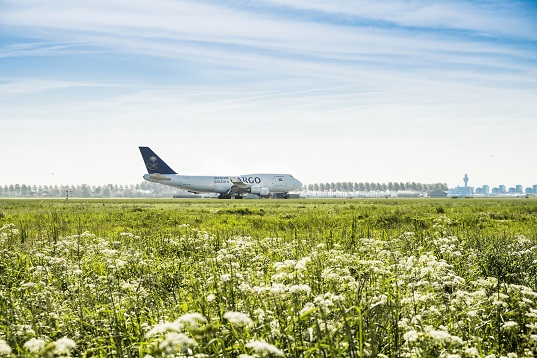Airport industry reaffirms commitment to climate action as aviation takes first steps towards post-COVID-19 recovery

As the aviation sector looks towards initial greenshoots of recovery, airports have renewed their commitment to climate action as a cornerstone of rebuilding an industry dealt a devastating blow by the global pandemic.
Through its Airport Carbon Accreditation programme first launched in 2009, the airport industry laid down the gold standard for carbon management in a sector which faces steep challenges in making a positive contribution to limiting climate change.
Eleven years later, with aviation reeling from losses in passenger traffic and revenues, airports worldwide are still showing unswerving determination to work towards sustainable air travel.
Despite the economic crisis and a recovery to 2019 passenger traffic levels not foreseen until 2024, the airport industry recognises that timely action is key to reducing the risk of future global and regional crises due to climate change – which in turn will be crucial in strengthening airport resilience.
Continued commitment through the height of the crisis – 300 milestone reached
Underpinning the sustainability ambitions of the airport sector, during the height of the COVID-19 crisis a number of airports joined Airport Carbon Accreditation for the first time, and several more progressed further through the accreditation levels.
In fact, it was during the worst of the pandemic that the programme passed the milestone of 300 accredited airports worldwide. The global total now stands at 312 Carbon Accredited airports.
Empowering airports to invest for a sustainable future
In order to ensure that airports can maintain and grow their climate action in spite of the crisis and its impacts, the Airport Carbon Accreditation Advisory Board has approved a set of temporary adjustments to the programme requirements. Amongst others, these changes allow airports to benefit from a one year extension of their certification, a streamlined verification process and thus reduced overall costs of accreditation. In this way, airports are supported during the worst of the economic downturn and enabled to embed climate action into their recovery plans moving forwards.
“Build Back Better”
In addition to being an unquestionable moral obligation, climate action will be key in rebuilding that vital ingredient in the recovery of the sector – public trust. Investing in climate-friendly infrastructure, operational efficiencies and teaming up with partners throughout the aviation eco-system for the benefit of our customers and local communities makes business sense as well as benefitting all our futures.
Niclas Svenningsen, Manager for Global Climate Action, UNFCCC said, “Looking to the post-COVID-19 future, we’re certainly going to see the acceleration of certain trends. With huge commitment and determination from the airport industry, their leadership in setting the path towards tangible reductions in climate footprint was already in place. Recovery from the pandemic is an opportunity to Build Back Better. Airports are voting for the future they want with their feet – by taking us beyond the 300 accredited airport milestone even at the height of the hit. This is an industry with an unshakable determination not to just play its part but to make a true difference”.

